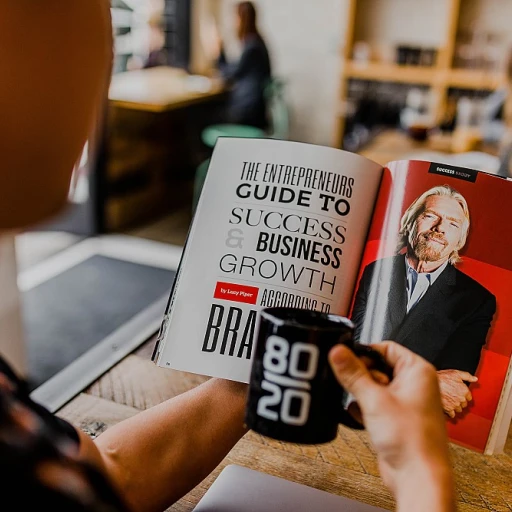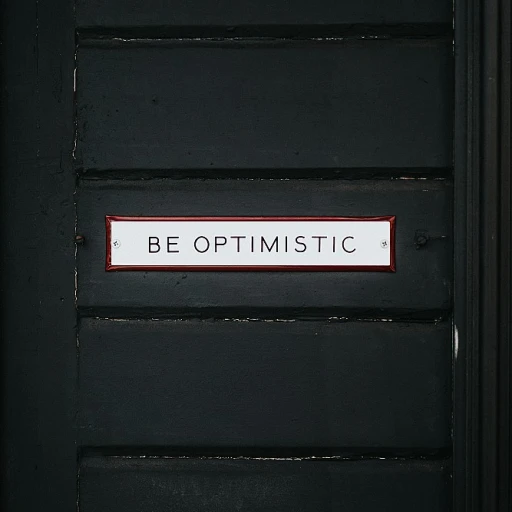
Understanding the Role of Talent Coordinators
Decoding the Role of Talent Coordinators
In the bustling world of influencer agencies, talent coordinators play a pivotal role in bridging the gap between brands and influencers. These professionals are the backbone of talent management, ensuring that the right influencers are matched with the right brands to create impactful marketing campaigns. The role of a talent coordinator is multifaceted, involving a blend of administrative duties, strategic planning, and relationship management.
Talent coordinators are responsible for a variety of tasks, including sourcing new talent, managing existing relationships, and coordinating with talent managers and marketing teams. They work closely with talent managers to ensure that influencers are aligned with the agency's goals and the brand's vision. This requires a keen understanding of the social media landscape and the ability to identify emerging trends and influencers who can drive brand engagement.
In cities like Los Angeles and New York, where the influencer industry is thriving, the demand for skilled talent coordinators is high. These professionals must possess strong organizational skills and the ability to multitask, as they often juggle multiple projects and deadlines simultaneously. Experience in public relations, marketing, or social media management can be a significant advantage in this role.
Moreover, talent coordinators must be adept at using data and analytics to inform their decisions. By leveraging insights from social media metrics and influencer performance data, they can make informed decisions about which influencers to partner with and how to optimize campaigns for maximum impact. This data-driven approach is crucial for staying competitive in the fast-paced world of influencer marketing.
For those interested in pursuing a career as a talent coordinator, it's essential to understand the nuances of the job and the skills required to excel. As the industry continues to evolve, talent coordinators will need to adapt to new trends and technologies to remain effective in their roles. To learn more about crafting a winning employer brand, visit this resource.
Challenges in Talent Acquisition for Influencer Agencies
Overcoming Obstacles in Talent Acquisition
The influencer industry is a dynamic ecosystem where talent coordinators encounter unique challenges daily. These challenges stem from the fast-paced nature of influencer jobs and the constantly evolving digital space. Understanding these hurdles can pave the way for more effective strategies and successful talent acquisition.
One notable challenge is the competition for top-tier influencers. Brands are continually vying for influencers with large followings and high engagement rates. This competition requires talent coordinators to have exceptional strategic skills to secure influencer partnerships that align with the brand's values and objectives.
Moreover, the rapid changes in social media trends demand that talent coordinators remain adaptable. With platforms constantly updating algorithms or introducing new features, unforeseen changes can affect the stability of existing partnerships or marketing approaches.
Another significant hurdle is the need for an in-depth understanding of the influencer's audience. Talent coordinators must ensure that an influencer's audience genuinely matches the target demographic of the agency's clients. This requires extensive research and often involves diving deep into analytics and data.
Administrative challenges also abound. Coordinators often handle scheduling, contract negotiations, and logistical tasks, alongside their primary role of talent management. This multifaceted nature of the job can be demanding, needing a delicate balance of administrative and strategic skills.
Yes, talent coordinators need to overcome diverse obstacles, but addressing these challenges effectively leads to more fruitful collaborations and successful influencer campaigns. For more insights on making a lasting impression with recruiters in this competitive field, getting your initial communications right is crucial.
Strategies for Effective Talent Sourcing
Crafting a Robust Talent Sourcing Framework
In the dynamic world of influencer marketing, sourcing the right talent is crucial for agencies aiming to connect brands with influential voices. A well-structured talent sourcing strategy not only enhances the agency's reputation but also ensures long-term success in a competitive market.
To begin with, understanding the specific needs of the brand is paramount. This involves a deep dive into the brand's identity, target audience, and marketing goals. Once these elements are clear, the talent coordinator can tailor their search to find influencers who align perfectly with the brand's ethos.
Utilizing Diverse Channels for Talent Discovery
Agencies should leverage multiple channels to discover potential influencers. Social media platforms like Instagram, TikTok, and YouTube are obvious starting points, but don't overlook niche platforms that might house untapped talent. Additionally, networking events and industry conferences in cities like Los Angeles and New York can be goldmines for discovering fresh faces.
Another effective strategy is to build relationships with talent managers and talent agents who have a pulse on emerging influencers. These professionals can provide insights and introductions that might not be accessible through traditional channels.
Implementing a Data-Driven Approach
Incorporating data and analytics into the talent sourcing process can significantly enhance decision-making. By analyzing metrics such as engagement rates, audience demographics, and content performance, agencies can identify influencers who not only have a substantial following but also resonate with the target audience. This approach is crucial for optimizing influencer marketing campaigns and ensuring a high return on investment.
For more insights on leveraging data in recruitment, consider exploring the landscape of nurse practitioner recruiters where data-driven strategies are also pivotal.
Streamlining Administrative Processes
Efficiency in administrative tasks is essential for talent coordinators. Utilizing tools and software that automate scheduling, contract management, and communication can free up time for more strategic activities. This not only improves productivity but also enhances the overall experience for both the influencer and the brand.
By focusing on these strategies, influencer agencies can build a robust talent acquisition framework that supports their long-term goals and adapts to the ever-evolving landscape of social media marketing.
Leveraging Data and Analytics
Data-Driven Decision Making in Talent Management
Leveraging data and analytics has become a cornerstone in the ever-evolving field of talent acquisition, especially within influencer agencies. As a talent coordinator or talent manager, the ability to utilize data effectively can directly impact the success of your agency's talent sourcing and management strategies. Utilizing advanced analytics provides numerous advantages in the often competitive influencer marketing landscape. Here’s how agencies can capitalize on data and analytics to optimize their talent management processes:- Optimization of Talent Sourcing: By analyzing social media metrics, talent agency managers can identify emerging influencers whose audience engagement aligns with the brand's objectives. This not only aids in scouting potential talent but also ensures that the social media influencer's values resonate with that of the brand.
- Performance Tracking: Statistics on influencer-driven campaigns offer insights into which types of influencers best meet the campaign goals. This could involve measuring parameters such as click-through rates, engagement levels, and conversion metrics. By tracking these, agencies can fine-tune their influencer selection and partnership strategies in real time.
- Reduced Hiring Time: Data-driven tools enable quicker identification of suitable candidates for influencer jobs, reducing the time spent on administrative tasks. This efficiency is crucial in fast-paced environments like Los Angeles and New York, which are hubs for influencer talent.
- Predictive Analytics: Advanced analytics can forecast trends and predict the future performance of influencers, offering a competitive edge for brand marketing strategies. Insights derived from predictive models can guide agencies in making informed decisions and seizing timely opportunities.
- Enhanced Relationship Management: Data analytics assists in understanding the effectiveness of ongoing collaborations. This understanding informs coordinators about the strategic adjustments needed to foster and maintain long-term partnerships, crucial for brands aiming to achieve sustained influence on various social media platforms.
Building Long-term Relationships with Creators
Creating Enduring Connections with Creators
Fostering long-term relationships with influencers is not just about transactional interactions. It’s about building mutual trust and respect, which can result in lasting collaborations that benefit both the agency and the creators. Here's how a talent coordinator can facilitate these lasting connections:- Personalized Engagement: Understanding the unique needs and preferences of each influencer is vital. Talent coordinators should engage with influencers on a personal level, truly getting to know their aspirations and challenges.
- Consistent Support: Offering consistent support and open communication channels is essential. Influencers appreciate when they feel valued and heard, which motivates them to align with your agency’s goals.
- Recognizing Value: Acknowledge the worth influencers bring to your brand. Expressing gratitude and providing platforms for them to showcase their creativity can enhance loyalty.
- Skill Development: Offering opportunities for professional growth can strengthen ties. Seminars on social media trends and workshops spearheaded by seasoned talent managers can be beneficial.













